SUMMARY
This is AI generated summarization, which may have errors. For context, always refer to the full article.
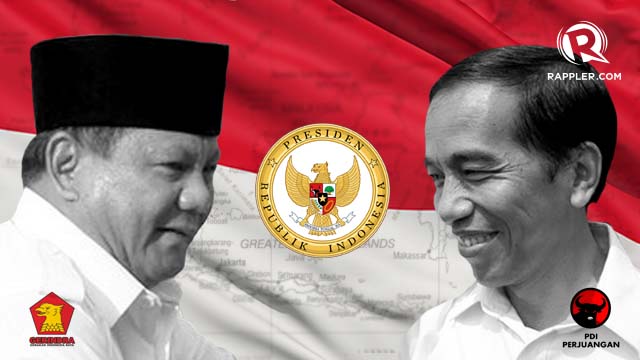
| Face of the Old Order | versus | Symbol of the New Era |
|---|---|---|
| Prabowo Subianto | Joko Widodo | |
| Great Indonesia Movement Party (Gerindra), which he founded and heads | Political Party | Indonesian Democratic Party of Struggle (PDI-P), chaired by former President Megawati Sukarnoputri |
| Son of a former Suharto economics minister who married a daughter of the former strongman. He became one of Suharto’s top military generals. | Background | Furniture businessman who became the highly-regarded mayor of Solo, Central Java, and then governor of the capital Jakarta |
| Ran as vice president with Megawati in 2009 but lost. Spent the last 5 years preparing for this year’s election. | Road to the presidency | Was catapulted to national fame as Jakarta governor, and his widespread popularity forced Megawati to step aside and nominate him as PDI-P’s candidate in March 2014. |
| “To develop an Indonesia that is united, sovereign, fair and prosperous, as well as dignified.” | Vision | “Create an Indonesia that is sovereign, independent and has an identity based on gotong royong,” a philosophy of working together towards a common goal |
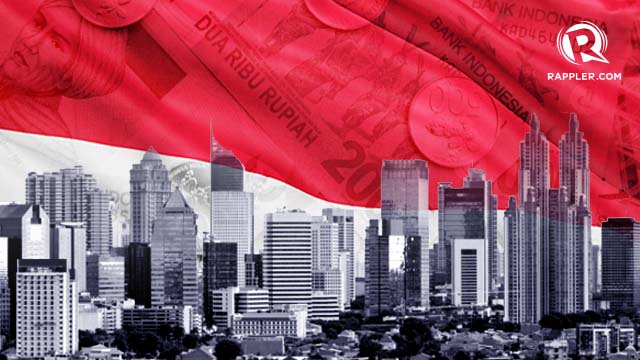
| Economic Growth | ||
|---|---|---|
Prabowo says he will stop the leakage of Indonesian assets worth about IDR1,000 trillion (US$84 billion), which is benefitting foreigners instead of the country. He says Indonesia’s economy can grow by 7%-10% per year if it plugs “leaks” such as:
|
Economic growth Indonesia’s GDP growth peaked at 6.5% in 2011 and declined to 5.2% at Q1 2014 Both are nationalistic in terms of overall approach. Prabowo focuses on plugging ‘wealth leakages’ while Jokowi emphasizes local development. (READ: Indonesian presidential hopefuls Jokowi and Prabowo pitch economic credentials and Debat Capres 2: Prabowo Versus Joko Widodo on the Indonesian Economy | Jokowi says economic development will be achieved by building human resources through good health and education. He says Indonesia can grow above 7% per year but should focus on reducing the rich-poor gap, such as by:
|
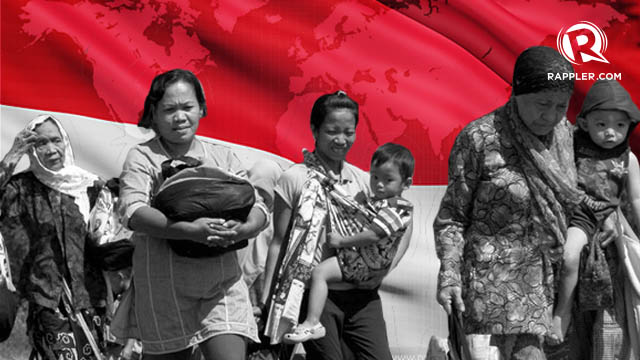
| Budget Deficit | ||
|---|---|---|
Prabowo plans to:
|
Fuel subsidies – at IDR210.7 trillion (US$18 billion) in 2014 – are seen as a major cause of Indonesia’s widening budget deficit | Jokowi plans to:
|
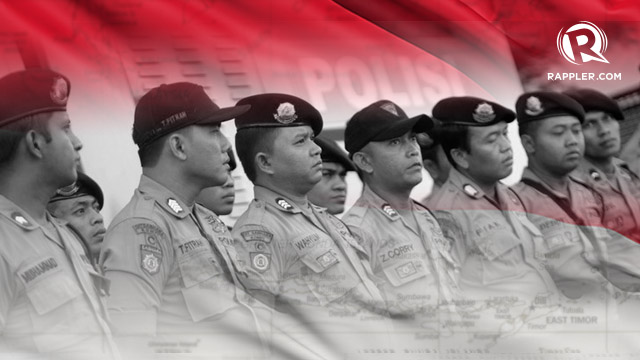
| Law enforcement and corruption | ||
|---|---|---|
| Prabowo wants to improve the welfare of law enforcement officers: “I think that the root of [law enforcement problems in] the end is money”. (READ: Debat Capres, Prabowo: Korupsi karena Gaji Kecil) | Transparency International ranked Indonesia 114th out of 177 countries and territories in its annual corruption perceptions index last year | Jokowi wants to restore the public’s faith in law enforcement: “Legal certainty comes first. [Who] the President is, is number two”. (READ: Joko Widodo: Kepastian Hukum Utama) |
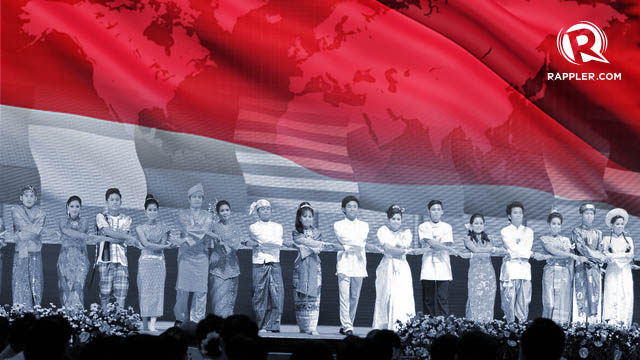
| Foreign policy | ||
|---|---|---|
| Prabowo’s campaign team says: “The South China Sea issue is a very important issue for us. Indonesia has the responsibility to continue and intensify our role. We need to maintain our active role in mediating the conflict, keep ASEAN united, and push for the signing of the code of conduct.” | Indonesia’s role as an ASEAN leader, including in mediating the South China Sea dispute (READ: Indonesian presidential candidates differ on South China Sea) | Jokowi said in a debate: “This is another country’s problem with another country. It is better if we can play a role, though we also need to check if it would sour our ties with China or whether we can find a resolution to the conflict… If our diplomacy isn’t useful and can’t find the right solution, then what for?” |
Add a comment
How does this make you feel?
Loading
There are no comments yet. Add your comment to start the conversation.